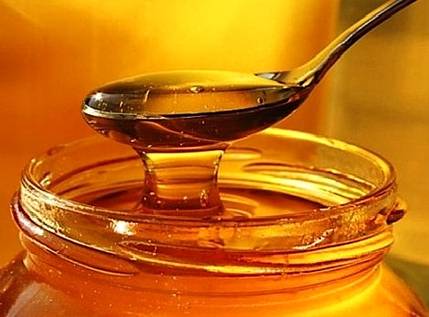An important preservative as well as sweetener, honey was an indispensable ingredient in the Classical kitchen. Along with the bees of Mount Hymettus and Mount Ida in Greece, the wild bees of Mount Hybla in the province of Ragusa, Sicily, were the most celebrated source of honey in Antiquity. They and their produce became a literary byword for all things exceptionally sweet and good, eventually coming to represent poetry itself. Citing Theocritus (c. 300 bc), the founding father of the pastoral idyll, the American 19th-century nature writer John Burroughs expanded on the subject in his Locusts and Wild Honey: ‘Sicily has always been rich in bees.

The idylls of Theocritus are native to the island in this respect, and abound in bees, ‘flat-nosed bees’ as he calls them in the Seventh Idyll, and comparisons in which comb-honey is the standard of the most delectable of this world’s goods. His goatherds can think of no greater bliss than that the mouth be filled with honeycombs, or to be inclosed in a chest like Daphnis and fed on the combs of bees; and among the delectables with which Arsinoe cherishes Adonis are ‘honey-cakes’, and other tidbits made of ‘sweet honey’. In the country of Theocritus this custom is said still to prevail: when a couple are married, the attendants place honey in their mouths, by which they would symbolize the hope that their love may be as sweet to their souls as honey to the palate.’ In his first Eclogue, Virgil described the ideal lullaby for old age to be the murmuring of Hybla bees. Ovid compared women’s hairstyles to their numberlessness. In Shakespeare’s Julius Caesar, with some sarcasm Cassius remarks that Mark Antony’s fine words ‘rob the Hybla bees and leave them honeyless’.
In one sonnet John Keats longs to sweeten his song by sipping the dew on ‘Hybla’s honied roses’ in the moonlight. Fanny Trollope, disappointed in business in the US, made euphemistic use of the honey’s proverbial qualities in her Domestic Manners of the Americans (1832): ‘During nearly two years that I resided in Cincinnati, or its neighbourhood, I neither saw a beggar, nor a man of sufficient fortune to permit his ceasing his efforts to increase it; thus every bee in the hive is actively employed in search of that honey of Hybla, vulgarly called money; neither art, science, learning, nor pleasure can seduce them from its pursuit.’ That pursuit was possibly not far from the mind of James Leigh Hunt when he published a popular volume of Sicilian divertimenti simply entitled A Jar of Honey from Mount Hybla in 1848. The actual thing can in fact still be purchased, in different varieties according to the flora of the season: the satra honey is derived from wild thyme; zagara honey from citrus flowers.
Extract from Blue Guide Sicily © Blue Guides, All Rights Reserved. For more Sicily posts, see here.






